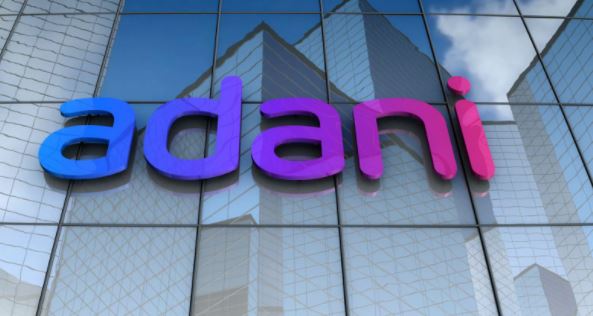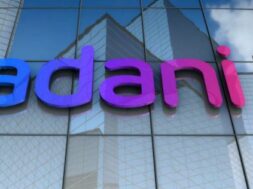
No Immediate Impact on Rated Adani Entities’ Credit Profiles from ”Short-Seller Report”
Fitch Ratings-Singapore: Fitch Ratings says there is no immediate impact on the ratings of the Fitch-rated Adani entities and their securities following a “short-seller report” alleging malpractices at India’s Adani group, and expects no material changes to its forecast cash flow. There are also no near-term significant offshore bond maturities – earliest in June 2024 for Adani Ports and Special Economic Zone Limited (APSEZ, BBB-/Stable); December 2024 for Adani Green Energy Limited Restricted Group 1 (AGEL RG1, BB+/Stable); and 2026 or beyond for all other entities – reducing refinancing risks and near-term liquidity risks.
Our ongoing monitoring will be looking closely at any major changes to the rated entities’ access to financing or cost of financing on a long-term basis, unfavourable regulatory/legal developments or ESG-related matters that could affect credit profiles.
Hindenburg Research published a report on 24 January 2023, alleging various purported malpractices leading to a downfall in the share and bond prices of various group entities despite the group publishing its response on 30 January 2023.
Fitch currently has ratings on eight entities/restricted groups within the Adani group – Adani Transmission Limited (ATL, BBB-/Stable); Adani Electricity Mumbai Limited (AEML, senior secured US dollar notes rated at ‘BBB-’); APSEZ; Adani International Container Terminal Private Limited (AICTPL, senior secured US dollar notes rated at ‘BBB-’/Stable); Adani Transmission Restricted Group 1 (ATL RG1, BBB-/Stable); Adani Green Energy Restricted Group 2 (AGEL RG2, senior secured US dollar notes ‘BBB-’/Stable); AGEL RG1 and Mumbai International Airport Limited (MIAL, senior secured US dollar notes ‘BB+’/Stable)
ATL RG1 restricted group includes six co-issuers – Barmer Power Transmission Service Limited, Chhattisgarh-WR Transmission Limited, Hadoti Power Transmission Service Limited, Raipur-Rajnandgaon-Warora Transmission Limited, Sipat Transmission Limited and Thar Power Transmission Service Limited – and one non-issuing SPV, Adani Transmission (Rajasthan) Ltd (ATRL).
The rated businesses are separately listed (directly or effectively), operate in utility or infrastructure businesses, and with relatively stable cash flow. The founding shareholders of Adani group effectively own the majority of shares. Some of the rated businesses (AEML and AGEL RG1) have strategic investors with board representation. Furthermore, the offshore bonds of all rated entities except APSEZ incorporate a cash flow waterfall mechanism and covenants which restrict cash upstreaming to shareholders and limit indebtedness.
Related-party transactions at these entities outside of the normal course of business are also limited. Some of these businesses, such as ATL and AEML, had received loans from related parties which have been repaid over time with investment proceeds from the Qatar Investment Authority and Abu Dhabi based Investment Holding Company. The credit profiles of other entities with meaningful related-party loans – such as AGEL RG1, AGEL RG2 and MIAL – benefit from deep contractual subordination of these loans through both a cash flow waterfall mechanism and security.
Fitch’s assessment of AEML reflects its regulated business across electricity generation, transmission and distribution, and supply businesses, which provide cash flow certainty. The regulations allow for pass-through of all operating and financing costs, limiting the impact on the credit profile even in the event of rising interest costs. AEML has low counterparty risk, while construction risk is also minimal as most planned investments are granular capex approved by the regulator.
ATL’s business profile benefits from its regulated asset base, a payment-pooling mechanism for transmission assets, diversified counterparty exposure, and an established record in executing and operating transmission projects. We expect EBITDA net leverage to remain around 5x over the medium term, commensurate with its rating. However, a sustained rise in financing cost could weaken the moderate medium-term EBITDA interest cover, forecast by us at around 2.3x, reducing its rating headroom. ATL can exercise flexibility in bidding for new projects, though it has limitations in deferring ongoing projects. However, funding is tied up for its ongoing projects.
The credit ratings at ‘BBB-’ for APSEZ, AICTPL, ATL RG1 and AGEL RG2 are constrained by India’s Country Ceiling (BBB-). Barring this constraint, the entities’ credit profiles would be commensurate with a ‘BBB’ rating.
APSEZ’s underlying credit assessment reflects its status as India’s largest commercial seaport operator, with most ports being primary ports of call in their respective regions. The credit assessment is also supported by efficient operations, resilient volumes throughout economic cycles, almost 50% of steady cargo, and flexibility in its investment plans. Fitch’s rating case estimates net debt/EBITDA of around 3.3x on average over the next three years, implying significant headroom in credit assessment. Even discounting all cash balances, Fitch’s gross leverage estimate is about 3.6x over the period, still within our underlying credit assessment trigger.
AICTPL’s underlying credit assessment reflects its strategic position as the primary port of call in north-west India, revenue stability from long-term contracts, largely origin- and destination-based cargo, and operational efficiency. AICTPL has a long-term terminal service agreement with Mediterranean Shipping Company S.A. (MSC), under which MSC is required to use AICTPL when its container ships call at Mundra Port. AICTPL is also partly indirectly owned by MSC. The assessment is weighed down by its customer concentration, limited record, and a back-loaded amortisation profile. Fitch’s rating case estimates net debt/EBITDA of around 2.3x and an average debt service coverage ratio (DSCR) of 2.57x.
ATL RG1’s underlying credit assessment reflects the project companies’ availability-based revenue under a supportive regulatory framework, with low technical complexity – reflected in high availability levels and operating performance that we expect to remain stable. Fitch projects an average DSCR of 1.48x, with a profile DSCR of 1.31x between the financial years ending March 2027 (FY27) and FY33, under our rating case. The underlying credit assessment is constrained by the project companies’ residual exposure to inflation in light of the mismatch between the operating and maintenance (O&M) cost-escalation rates and the largely unindexed revenue base.
AGEL RG2’s underlying credit assessment reflects a pure solar portfolio with 570MW capacity, long-term fixed-price power purchase agreements (PPAs) – with 61% of total capacity signed with sovereign-owned Solar Energy Corporation of India, commercially proven technology, experienced O&M contractors, an adequate financial profile, and weighed down by the entities’ limited operating record. Noteholders benefit from a standard security package and robust covenants restricting distributions. The debt instrument is largely amortising, with limited refinancing risk at maturity. Fitch’s rating case estimates an average annual DSCR of 1.44x.
AGEL RG1 is also a pure solar portfolio with total capacity of 930MW. The rating is underpinned by long-term fixed-price PPAs – with 57% of total capacity contracted with sovereign-owned entities, commercially proven technology, experienced O&M contractors, and an adequate financial profile. Noteholders benefit from a standard security package and robust covenants restricting distributions. The notes have a bullet repayment due in 2024. However, the refinancing risk is mitigated by the remaining terms of the PPAs and a senior debt restricted amortisation account. The restricted group generates an average annual DSCR of 1.32x in Fitch’s rating case.
MIAL’s rating reflects its regulated asset base, Mumbai’s strong passenger growth potential, the higher contribution of domestic traffic than international traffic, and MIAL’s adequate financial profile. Within the regulatory framework, the concessionaire earns return on its regulatory asset base. MIAL’s capex is mainly for improving runway efficiency and maintenance. The rating case assumes a full recovery of traffic to pre-pandemic levels by end-2024, with average leverage of 6.6x over FY23-FY25.














